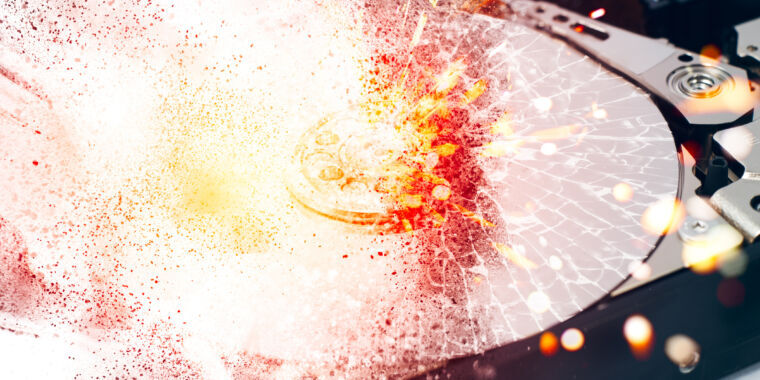- cross-posted to:
- hackernews
- cross-posted to:
- hackernews
My father told me he wanted to make USB flash drives of all the scanned and digitized family photos and other assorted letters and mementos. He planned to distribute them to all family members hoping that at least one set would survive. When I explained that they ought to be recipes to new media every N number of years or risk deteriorating or becoming unreadable (like a floppy disk when you have no floppy drive), he was genuinely shocked. He lost interest in the project that he’d thought was so bullet proof.



Punch cards? Stored correctly there’s no reason they couldn’t last many human lifetimes. But… Yeah it’ll take a while to encode everything.
I would have thought that with modern technology we could come up with something like punch cards but more space/time efficient. Physical storage of data - only one write cycle of course, but extremely durable. Even just the same system as punch cards but using tiny, tiny holes very close together on a roll of paper. Could be punched or read by a machine at high speed (compared to a regular punch card, presumably still Ber slow compared to flash media).
Paper doesn’t last centuries. Anyway, punched cards don’t have a storage density that’s adequate for modern data volumes. You need something that’ll durably store nanometre-sized marks.
Yes that’s what I’m thinking, some modernised physical data storage technique.